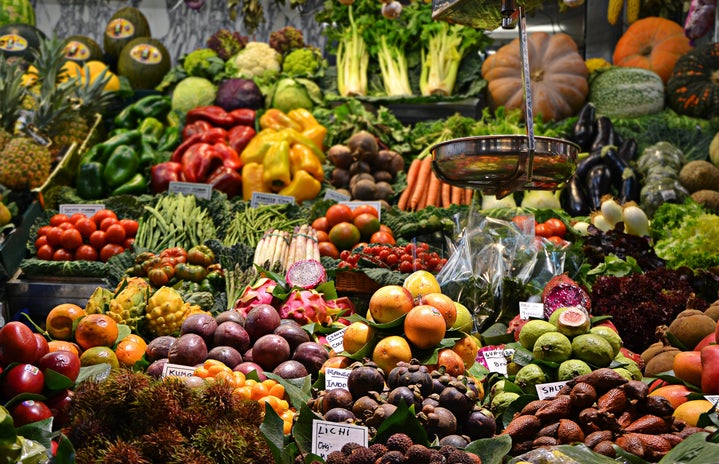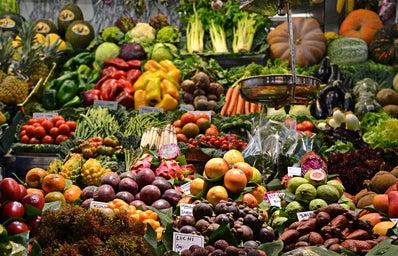Cooking as a student, particularly when constrained by limited time and budget, might mean that sustainability is the furthest thing from your mind. But it doesn’t have to be all or nothing – no effort is too small, and introducing a few practices into your shopping and cooking can have a tremendous impact in fostering a sustainable-orientated attitude. More than anything, these practices encourage awareness of where our food comes from and the impact that this has, which in turn enables us to make mindful decisions about how we eat.
shop local
Bristol is home to some wonderful greengrocers – Gloucester Road is particularly great for sourcing fresh and local produce, but if this is a little far, there are also several scattered around Clifton and Redland. I think the biggest source of resistance from students to shopping in greengrocers is the price, and this is hard to dispute. There are however, some ways around this: Bristol greengrocers will often advertise boxes of produce on Too Good To Go (an app which allows shops and eateries to sell leftover food or ingredients at the end of the day at a reduced price, in an effort to combat food waste) for an extremely reasonable price. There are so many benefits to making the switch to greengrocers: most prominently, significantly fewer food miles and (correspondingly) a reduced carbon footprint. Though air travel is only used for a small minority of produce (high-value, perishable goods such as berries), these products constitute around 11 percent of the UK’s food-transport emissions. Shopping in greengrocers means eating according to what is in season and what is grown locally, guaranteeing your food hasn’t travelled across the world to reach you. A further ecological benefit is that shopping in greengrocers means sidestepping the mountains of needless single-use plastic packaging found in supermarkets.
learn to love vegetables
Abandoning meat or dairy in its entirety can be difficult, particularly if you are someone who really enjoys a lovingly-roasted chicken or an extra-mature cheddar. I realise that diet is a hugely personal thing, and preaching that veganism is the future is not always productive. But in light of the huge toll that animal products take on the environment (particularly the meat industry, which makes profound contributions to greenhouse gas emissions, water use, biodiversity loss and deforestation), I think that making an effort to incorporate more plants into our diets is something we should all be doing. Practices such as Veganuary or ‘meat-free Mondays’ are a fantastic way to challenge yourself in this regard without being overwhelmed by a compete lifestyle-change. For those who do choose to pursue plant-based (anything from one day a week to full-time), they could not be better placed to do so, as Bristol was crowned the most vegan-friendly city in the UK by a study earlier this year. Take advantage of living in this city to explore its 197 vegan-friendly eateries, and save the world one Oowee Vegan burger at a time.
be mindful of food waste
Research has shown that every year, a third of all food produced for human consumption is wasted – this amounts to a monumental 1.3 billion tonnes of food annually. It therefore goes without saying that addressing our food waste is one of the most important things we can do in terms of eating more sustainably. If you are someone who enjoys cooking, I think expanding your repertoire to include some zero-waste recipes is something you can really have fun with: throw leafy carrot tops into pesto, whizz up stale bread for homemade breadcrumbs, or hold on to vegetable scraps for making stock. I think when shopping for one, it can be tempting to load up on food and later throw away what perishes or just doesn’t get eaten. Some basic planning can help with this: thinking ahead about meals for the week and shopping accordingly (rather than just buying a random assortment of ingredients), introducing more communal meals with housemates, or considering how to repurpose leftovers. Think twice before throwing away food, and use it as an opportunity to be creative.
This article is part of a themed week to commence the term at UOB Her Campus, focused on all things fresh, new and inspiring to kick off 2022.

